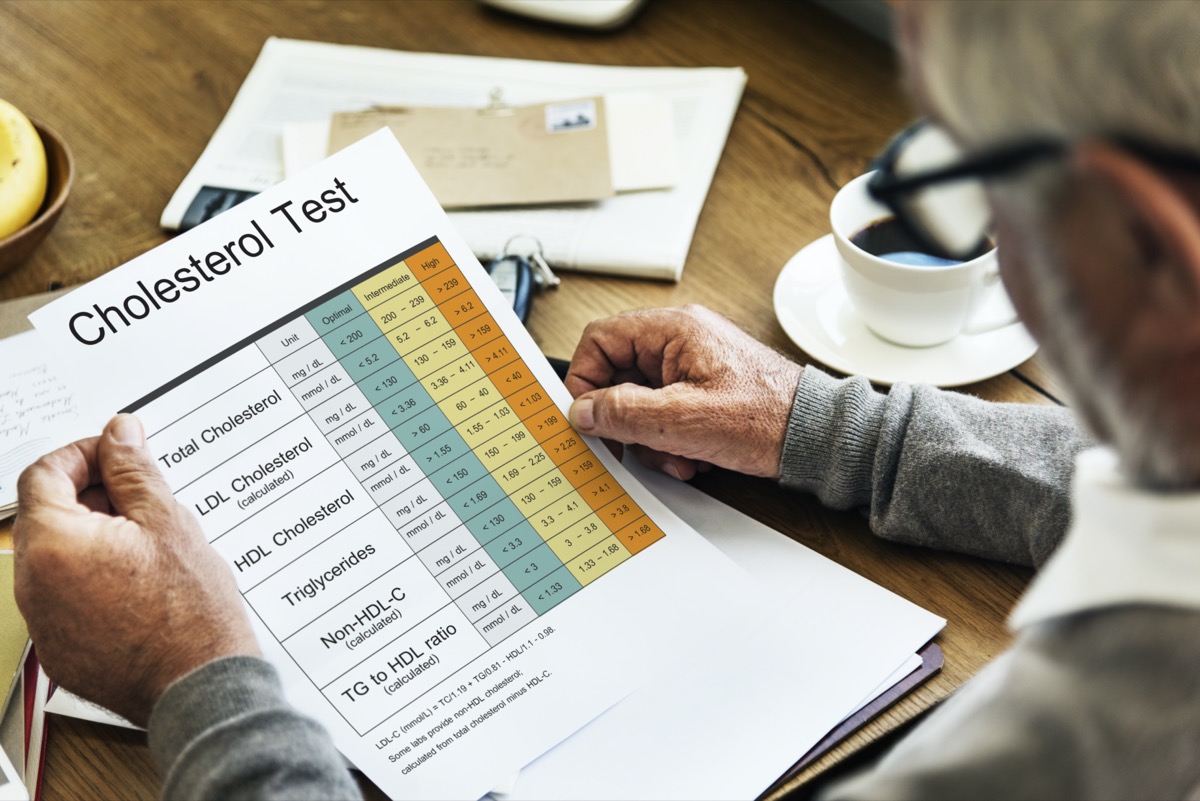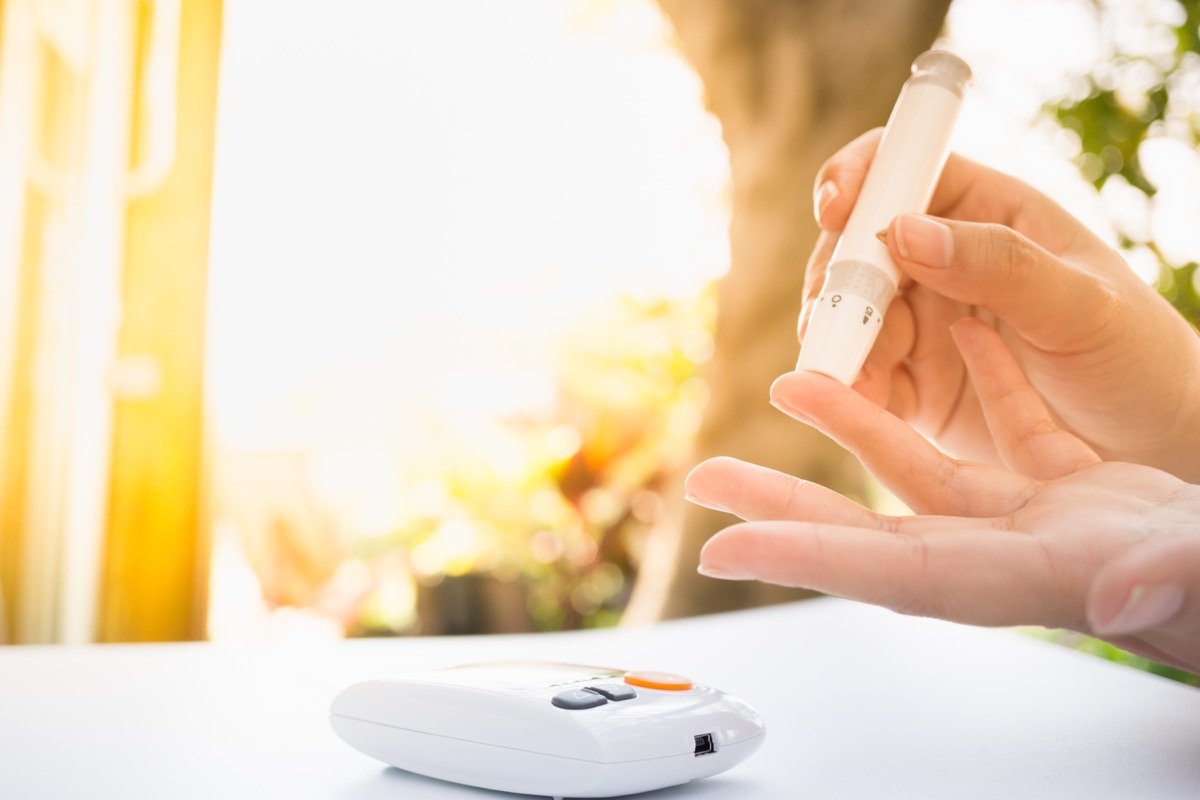12 Surprising Health Benefits of Red Wine

Whether you drink alcohol socially or regularly in moderation (which means one glass per day for women and up to two glasses per day for men), most can agree that there's nothing more complementary to a nice dinner than a glass of wine. Over the years, researchers have conducted several studies that would suggest that wine, particularly red wine, offers a host of potential health benefits. In fact, most literature on the health benefits of wine often promotes red wine over the white variety.
Kelli McGrane, MS, RD, registered dietitian for the food-tracking app Lose It! and author of The Healthy Toast blog, says, "Not only is there more research on the components of red wine intake compared to white, but many studies that have looked at the benefits of wine intake don't separate white from red wine. As a result, it's possible that white wine has healthful compounds that we just aren't aware of currently."
Needless to say, more research needs to be done in order to truly know how wine—and which kinds of wine for that matter—actually impact the body for the better. For now, we have compiled a list of potential health benefits of wine that have been studied so far.
These are 12 research-backed health benefits of wine.
Wine may prevent cardiovascular disease.

"The top health benefit [of drinking wine] is cardiovascular protection," says McGrane. "Studies have found a J-shaped relationship between wine intake and cardiovascular risk. What this means is that moderate wine drinking—one glass per day for women and up to two glasses per day for men—is associated with a decreased risk of cardiovascular disease."
The primary reason why wine is believed to stave off heart disease is because of the beverage's polyphenol antioxidant content. The polyphenol resveratrol found in red wine may help to protect the lining of the blood vessels in the heart, for example.
McGrane says that red wine has, on average, 10 times more polyphenols than white wine. In addition, she says that resveratrol, "has been studied for its potential, not only in cardiovascular protection, but also in the treatment of heart disease."
However, McGrane also points out that once you surpass that recommended daily allowance, the risk of heart disease actually may begin to increase. Moderation is key when it comes to alcohol consumption!
It may reduce the risk of stroke and heart attack.

On a similar note, because wine is currently believed to reduce the risk of cardiovascular disease, that also means it's thought to ward off cardiovascular-related events, such as heart attack and stroke. Both heart attack and stroke occur when blood vessels become blocked, and resveratrol in red wine may help to prevent blood clots and the blood vessels from becoming damaged as well.
STAY INFORMED: Sign up for our daily newsletter to get the latest food news delivered straight to your inbox.
Wine may lower harmful cholesterol levels.

Reservatrol has also been shown to lower low-density lipoproteins (LDL) cholesterol levels, which can cause coronary artery disease if consumed in excess. One of the top ways you can actively keep harmful cholesterol levels in check—and ultimately prevent heart disease—is by limiting the intake of saturated fat, predominantly found in red meat. When LDL levels are too high, plaque begins to harden in the artery walls and can eventually block blood from getting to the heart and brain. Red wine has also been shown to increase high-density lipoproteins (HDL), which is the healthy kind of cholesterol. Pour a glass of merlot to go with your healthy vegetable and lean protein-filled dinner to keep harmful cholesterol levels at bay.
It can ward off type 2 diabetes.

McGrane says that red wine may help to protect against type 2 diabetes, which occurs when the body cannot efficiently use insulin to balance blood glucose (sugar) levels.
"Numerous epidemiological studies have found an association between moderate wine intake and decreased risk of developing type 2 diabetes. Again, this is thought to be largely associated with the polyphenols in wine," she says.
Researchers have also found that ethanol—the principle ingredient in various alcoholic beverages—as well as other non-alcoholic components in wine helped to facilitate glucose metabolism in patients with type 2 diabetes.
It can reduce the risk of depression.

In 2013, researchers from Spain found a possible link between wine consumption and depression. The study followed 5,500 men and women between the ages of 55 and 80 over the course of seven years. Those who drank between two and seven glasses of wine every week were less likely to be depressed than those who didn't drink it all. Heavy consumption of wine, however, was associated with a higher risk of a depression diagnosis.
Wine may ward off dental cavities.

According to a study from the Journal of Agricultural and Food Chemistry, red wine was shown to kill some cavity-causing bacteria. Former research has suggested that the polyphenols in both wine and grape seed extract can actually stunt bacterial growth. We're not saying to totally ditch the toothpaste and mouthwash, but you shouldn't worry so much about red wine staining your teeth as you should celebrate the fact that it may be preventing you from your next cavity.
Wine can increase omega-3 fatty acid levels and thus decrease inflammation.

McGrane says there's research that shows that both men and women who regularly consume moderate amounts of wine have higher levels of omega-3 fatty acids, independent of fish intake. Salmon, in particular, is chock-full of heart-healthy omega-3 fatty acids.
"This is important, as omega-3s help to reduce inflammation in the body and may help reduce the risk of numerous chronic diseases," she says.
McGrane says that the link between wine consumption and omega-3 fatty acids is still not fully understood.
"One of these trials suggests that the polyphenol antioxidant concentrations in wine may stimulate the synthesis of EPA and DHA," she says. EPA and DHA are two kinds of long-chain omega-3 fatty acids primarily found in fish.
Wine can reduce the risk of neurodegenerative diseases.

One study revealed a connection between red wine neurodegenerative diseases, namely Alzheimer's and Parkinson's. Researchers found that certain compounds called metabolites that remain in the gut after the wine has been consumed are protective against the death of neurons, which could delay the onset of such diseases.
Wine may slightly increase bone density.

Drinking alcohol in excess is actually associated with reduced bone density. However, one study found that drinking moderate amounts of alcohol—which is to say less than 29 drinks per month—leads to a slightly higher bone mineral density. The study showed that men who drank a moderate amount of alcohol each month reported 2.1 percent higher bone mineral density than non-drinkers. Even more impressive was that the postmenopausal women who drank in moderation reported a 3.8 percent higher bone mineral density than those who refrained from drinking.
Wine may prevent liver disease.

Those who are at risk of cardiovascular disease also may be at risk of developing what's called nonalcoholic fatty liver disease, and one study found that modest wine consumption (about one glass per day at most) was associated with reduced risk of NAFLD.
It can support gut health.

While drinking too much alcohol can wreak havoc on the gut, moderate amounts of red wine were actually found to have positive effects. In one study, individuals who drank 9.2 ounces of red wine for 20 days experienced an increase in the abundance of bacteria that promote gut health (probiotics) and, as a result, effectively decreased the number of harmful bacteria. Researchers believe the polyphenols in red wine promoted such prebiotic benefits.
It can help prevent severe sunburn.

Evidently, wine and other grape derivatives can help protect the skin from the damaging effects of UV rays. When UV rays make contact with the skin, they activate what's called reactive oxygen species (ROS), and one study from the University of Barcelona discovered that some flavonoids, or polyphenolic substances extracted from grapes, can reduce the number of ROS that form on the skin. Who knew a glass of pinot noir could help you fend off sunburn?








